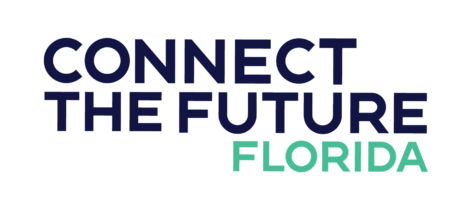Charter Communications Brings “A Real Rural Tech Talk” & 4-H Essay Competition to Escambia County with Florida CFO Jimmy Patronis
Connect the Future (CTF) supporter Charter Communications recently hosted “A Real Rural Tech Talk” Roundtable and 4-H Essay Competition at the 4-H Center in Cantonment in partnership with the University of Florida and the Institute of Food and Agricultural Sciences 4-H Youth Development Program. The discussion, moderated by Escambia County Commissioner Steven Barry, featured group vice president of state government affairs at Charter Communications Marva Johnson and a roundtable of local educational, agricultural, business, and health care leaders who convened to discuss the current opportunities and challenges of broadband deployment, access, and adoption for unserved families and businesses in rural North Florida.
The event began with a keynote speech from Florida Chief Financial Officer Jimmy Patronis, who emphasized: “You realize how much we depend on good internet when you have a year like 2020… the ability to expand and access broadband networks in our rural parts of the state is critical.”

Here are three key takeaways from the event:
Takeaway #1: Long-term rural infrastructure investments will reap greater benefits than short-term fixes.
Florida CFO Jimmy Patronis addressed the challenges the state faced during the past year under the COVID-19 pandemic and how it made even clearer the critical need to ensure that all Floridians have access to broadband. “You realize how important the internet is to communicate, work, educate,” said Patronis. “The ability to expand and access the broadband network in our rural parts of the state is critical for job development and expansion, access to healthcare, and more.”
Patronis shared his experience from this past year helping communities all across Florida address connectivity issues during the pandemic. He recognized that most of these problems were temporarily addressed with quick-fixes – distributing cell phones and laptops or setting up additional Wi-Fi hotspots. What’s needed though, is a long-term investment in expanding rural broadband access. Patronis called for the efficient and effective expansion of broadband infrastructure to rural and unserved regions in Florida.
Takeaway #2: The need for reliable, high-speed broadband access isn’t unique to any particular group of Floridians; all Floridians need broadband access, now.
The roundtable participants agreed: there is a vastly diverse array of stakeholders – educators, students, agricultural workers, health care workers, small business owners – who still lack access to reliable, high-speed broadband in Florida, and they all must be included in the discussion to ensure the effectiveness of expanding broadband infrastructure buildout.
We hear often about the need for broadband for education and healthcare, but panelists also noted the critical role that internet access plays in Florida’s agricultural and economic success. As agricultural technology rapidly modernizes, too many in Florida’s agricultural communities remain without access to the virtual tools that help them become more efficient, economical, and environmentally friendly to compete in an increasingly global marketplace. As Gizmo Angus Farm’s Jacob Gilmore pointed out, similar to other fields, “everything [in agriculture] is now data-driven.”
Takeaway #3: The digital divide in Florida is exacerbating the state’s “homework gap.”
As online education options were critical this past year, a lack of broadband access impacted all of Florida’s students, spanning elementary schools all the way to universities. Dr. Brian Unruh, Professor and Associate Center Director at the University of Florida, discussed how a lack of connectivity inhibited his students’ ability to participate in research – a critical component of students’ learning experiences.
Florida high school students and 4-H leaders Jessica Conti and Brooke Adams also shared their experiences adjusting to online school amid the pandemic. They were forced to adapt to Zoom classes, virtual assignments, and online group projects, and unfortunately some of their classmates lacked the broadband access to participate in this new educational environment. Furthermore, Jessica highlighted the impact that broadband access has had not only classroom experiences, but extracurricular experiences as well, such as 4-H. Spotty connections or a complete lack of broadband access rob students of both the educational and rich professional experiences otherwise gained at school.

The event concluded by recognizing the outstanding efforts of the three top-placing 4-H students for the OpportunityforAll – Expanding Rural Connectivity Essay #2 Competition. In the first essay competition, 4-H members across Florida discussed the impact that technology and broadband issues have had on rural agricultural communities. For this second competition, students discussed the challenges that small, rural communities face without broadband connectivity.
- 1st Prize: August Speisman (Duval County), “Why Broadband is Vital to the Food and Agriculture Industries”
- 2nd Prize: Anna Steed (Hillsborough County) “Broadband Connectivity in Rural Agriculture Communities”
- 3rd Place: Ryleigh Rhoden (Bradford County), “Connecting for Crops”
